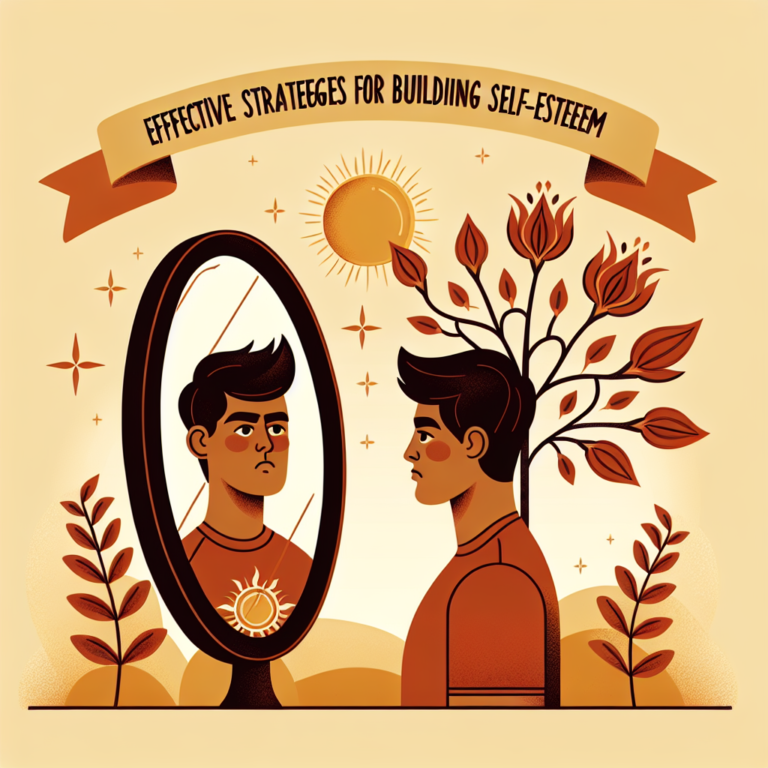
From Diagnosis to Acceptance: Navigating the Psychological Journey of Chronic Illness
Introduction
Receiving a chronic illness diagnosis can be one of life’s most challenging moments. The shock and uncertainty that follow can leave individuals feeling lost, anxious, and even hopeless. Yet, along the path from diagnosis to acceptance, many people discover resilience and strength they never knew they possessed. In this comprehensive exploration, "From Diagnosis to Acceptance: Navigating the Psychological Journey of Chronic Illness," we will delve into the various emotional landscapes encountered by those living with chronic illness and provide actionable insights for navigating these turbulent waters.
The journey is often fraught with complexities; it encompasses denial, fear, anger, and ultimately, acceptance. Each step in this journey is crucial and transformative. This article reveals the stages of this psychological odyssey and the tools you can use to foster acceptance and create a fulfilling life beyond illness.
Understanding Chronic Illness: A Definition
Before embarking on our exploration of the psychological journey, it’s essential to define what we mean by chronic illness. Chronic illnesses, such as diabetes, fibromyalgia, and multiple sclerosis, are long-term health conditions that can dramatically affect daily life. They often require ongoing management and can lead to various psychological responses from patients and their loved ones.
Table 1: Common Chronic Illnesses and Associated Challenges
| Illness | Common Symptoms | Psychological Impact |
|---|---|---|
| Diabetes | Fatigue, increased thirst | Anxiety, fear of complications |
| Fibromyalgia | Widespread pain, sleep issues | Depression, frustration |
| Multiple Sclerosis | Mobility issues, fatigue | Isolation, uncertainty |
| Hypertension | Often asymptomatic | Stress, uncertainty about future |
The Initial Shock: Diagnosis Day
For many, the day of diagnosis can feel like a cold bucket of water, waking them from a sense of normalcy. The emotional impact is profound and can span various reactions, from disbelief and anger to sadness and fear.
Case Study 1: Emma’s Diagnosis of Rheumatoid Arthritis
Emma, a 35-year-old mother of two, was living a fulfilling life until fatigue and joint pain began to interfere with her daily activities. After months of tests, a rheumatologist finally diagnosed her with rheumatoid arthritis. The initial shock led her into a state of denial, grasping for hints of normalcy in an uncertain new reality. Emma’s case highlights the common emotional turmoil that accompanies diagnosis day.
Analysis
Emma’s experience underscores the importance of acknowledging that initial shock. Understanding that these feelings are not only normal but also a part of the human response can help individuals begin to heal.
The Stages of Grief: Navigating Emotional Responses
Psychologist Elisabeth Kübler-Ross famously outlined the five stages of grief: denial, anger, bargaining, depression, and acceptance. Although her model was initially developed for those facing terminal illness, it resonates deeply with the emotional responses observed in individuals coping with chronic illnesses.
Denial
Denial can manifest as a refusal to accept the diagnosis or an underestimation of its impact. Some may continue with life as though nothing has changed, hoping that the symptoms will magically disappear.
Anger
As reality sets in, anger can surface. Individuals may direct this anger toward themselves, their healthcare providers, or even friends and family.
Bargaining
This stage often involves thoughts like, "If I just try harder to stay healthy," or "I’ll manage my symptoms perfectly, and maybe this will go away."
Depression
Feelings of sadness, anxiety, and isolation can overwhelm individuals during this stage. It’s crucial to recognize that seeking help is a sign of strength.
Acceptance
Reaching this stage does not mean the absence of difficulties; instead, it represents a new understanding and adaptability to life with a chronic illness.
Tools for Coping: Building a Psychological Toolkit
As individuals navigate their journey from diagnosis to acceptance, several tools can facilitate emotional healing and resilience.
Mindfulness and Meditation
Practicing mindfulness allows individuals to ground themselves in the present moment, reducing anxiety about the future. Meditation can also enhance emotional regulation, leading to improved psychological well-being.
Support Networks
Connecting with others who share similar experiences can provide emotional support. Online forums, support groups, or even friends and family can serve as vital sources of encouragement.
Professional Counseling
Therapeutic interventions, such as cognitive behavioral therapy (CBT), can aid in reframing negative thoughts and building coping strategies. Engaging with mental health professionals can provide invaluable support.
Table 2: Psychological Tools for Chronic Illness
| Tool | Benefits |
|---|---|
| Mindfulness | Reduces anxiety; enhances present-moment awareness |
| Support Networks | Provides emotional support; creates a sense of community |
| Professional Counseling | Offers tailored coping strategies and emotional support |
The Road to Acceptance: Creating a New Normal
Acceptance is less about resignation than about finding peace within the new reality. It may involve adapting lifestyle changes, managing symptoms, and setting realistic goals for oneself.
Case Study 2: David’s Journey with Crohn’s Disease
David, diagnosed with Crohn’s disease at 25, initially struggled with the restrictions imposed on his life. Over time, he learned to adopt a healthy diet, adhere to medication schedules, and communicate openly with family about his limitations. As a result, David cultivated a new sense of purpose in advocating for awareness around the condition.
Analysis
David’s experience illustrates how acceptance can stimulate personal growth and empowerment. By creating a ‘new normal,’ individuals can forge meaningful paths forward.
Inspirational Narratives: The Power of Stories
Sharing experiences can inspire others navigating their own journeys. Hearing from those who have succeeded in finding acceptance can be transformative.
Case Study 3: Sarah’s Advocacy Journey
After being diagnosed with lupus, Sarah transformed her struggle into a mission, founding an organization to support others with chronic illnesses. Her story emphasizes resilience and advocacy, encouraging individuals to turn their challenges into powerful narratives.
Analysis
Sarah’s advocacy underscores the importance of finding meaning through suffering. It demonstrates that one can turn a personal struggle into a source of inspiration for many.
Conclusion: Action Steps toward Acceptance
Navigating the psychological journey from diagnosis to acceptance can be daunting. However, by employing tools such as mindfulness, fostering connections with support networks, and seeking professional guidance, individuals can lead fulfilling lives despite their diagnoses.
Actionable Insights
- Practice Mindfulness: Start with just a few minutes a day to cultivate present-moment awareness.
- Reach Out: Don’t hesitate to connect with someone who shares your experience, whether online or in person.
- Seek Professional Help: A therapist can provide you with personalized tools for managing your mental health.
- Empower Yourself: Advocate for yourself and others; turn your journey into a narrative that inspires action and awareness.
In the end, the journey from diagnosis to acceptance is not linear. However, it holds the potential for profound personal growth and vitality.
FAQs
1. What should I do immediately after receiving a chronic illness diagnosis?
Focus on gathering reliable information about your condition and connecting with a support network. Knowledge empowers you as you navigate your journey.
2. How can I cope with feelings of isolation?
Engage with online communities or local support groups where you can share your experiences and connect with others who understand.
3. Is it normal to feel angry about my diagnosis?
Absolutely. Anger is a common response, and acknowledging it is a critical step towards healing.
4. How long does it take to reach acceptance?
The timeline varies for everyone. Acceptance is a personal journey and does not have a deadline.
5. Can advocacy help in my journey towards acceptance?
Yes! Advocating for yourself and sharing your story can generate positive changes and improve your emotional well-being.
By implementing these tools and embracing the stages of your journey, you can move from diagnosis to acceptance and live a fulfilled life enriched by both challenges and triumphs.

















